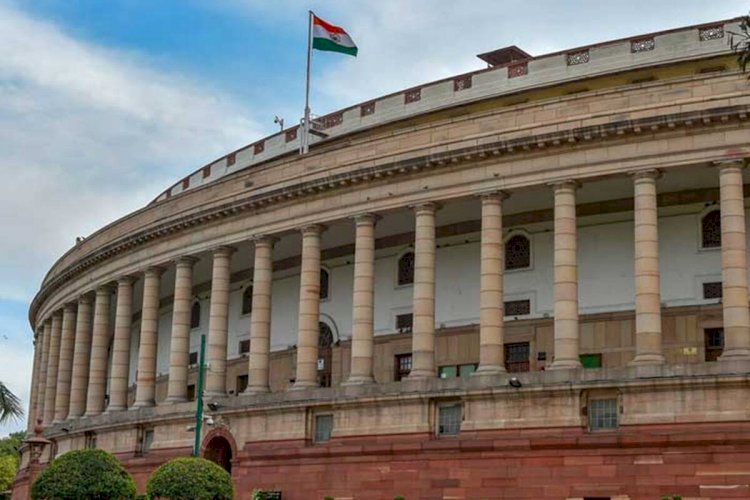Political importance of Monsoon session
For Printing Download Epaper from files section from bottom of this page

The monsoon session of Parliament begins on Monday. It is significant in the sense that, it is the first full session since the Corona crisis seized India. As the second Corona wave is showing signs of fading away and most of the parliamentarians and staff are vaccinated, it has not been a risky affair now. So, the work will be in full swing after a gap of one and a half years. This is a positive thing for Indian democracy. The parliamentarians will now return to their main business of participating in law-making. The second fact that makes the session extremely relevant is a new and expanded council of ministers will be put to test. The most tedious job has been given to Mansukh Mandaviya who is the new health minister. General public sentiments became angry against the Modi government because of the utter failure of health administration. Modi changed Harshwardhan and brought Mandaviya for his image jeopardized due to very poor job by former. But we must show sympathy for Harshwardhan as all the decisions from ordering vaccine doses to export vaccines to foreign countries and distributing vaccine doses to state governments were taken by Modi himself. Mandaviya should concentrate now on strengthening the health system otherwise he would be next to Harshwardhan. He will be under fire from opposition though it knows that, he has just taken over the charge. This session will be very important for both rulers and opposition with an eye on elections scheduled early next year in Punjab and Uttar Pradesh. BJP has an edge in UP but there has been vast displeasure about the handling of the Corona crisis by the Yogi government. In the case of Punjab, Congress has somehow settled the spat between Navjyot Singh Siddhu and chief minister Amrindar Singh. But Congress would be busy in setting its house in order. Most importantly, the battle for 2024 has already begun and each intervention will be with an eye on cultivating constituencies, building alliances, projecting leadership, and pushing one’s narrative. Precisely because of all these factors, both the treasury and Opposition benches have a common, rare, convergence of interest in seeing a functional session. To be sure, it will be stormy and there are bound to be walkouts and disruptions, but all indications are that legislative and political business will get done too. In this overall context, it is instructive to examine the strengths, vulnerabilities, and strategies of both sides as they approach the session. Within the Opposition, there is both intensified cooperation and heated competition, with the singular objective of emerging as the primary voice against the Narendra Modi government. This cooperative-competitive impulse will play out in different ways. The Opposition is on the same page on a range of issues. This includes hopes of cornering the government on its Covid-19 management strategy, especially during the second wave and questioning its vaccination policy. It includes raising the issue of price rise, especially of fuel, which is largely (but not exclusively) a result of taxes — a rising concern that the Opposition believes will resonate with voters. The convergence extends to questioning the government on the economic downturn, especially rising unemployment and depleting demand. The new farm laws and stiff opposition from a section of farmers will be a headache for the government. This issue will be a big issue in the coming session. Modi government will have to sort out the problem as early as possible otherwise it will have to face the music in coming state elections. The session will set the strategies for both sides oh this issue. All in all, the session starting from Monday will be a litmus test for both sides where they stand in strength.

 Active Times
Active Times 

















